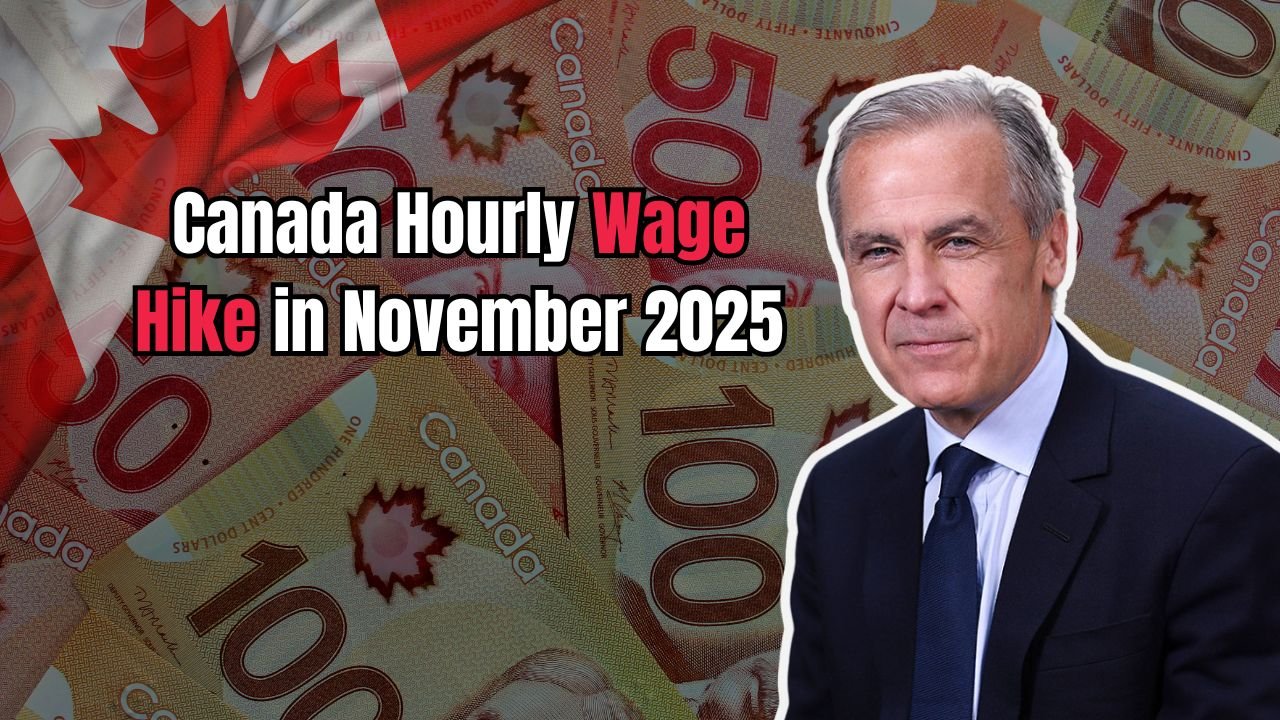In November 2025, Canada is launching a major increase in the hourly minimum wage, providing much-needed relief to millions of workers across the country. This long-awaited adjustment is designed to keep up with inflation and ensure fairer compensation across all provinces and territories. The new rates will differ by region, with some provinces seeing higher percentage hikes. The federal and provincial governments aim to help lower-income workers handle rising living costs and strengthen economic fairness in both urban and rural areas.
New Hourly Wage Rates for Canadian Workers in 2025
The wage rise set for November 2025 represents one of the most extensive minimum-pay adjustments in recent times. Each province has recalculated its minimum wage based on inflation trends, cost-of-living analyses, and regional employment data. For instance, provinces such as Ontario and British Columbia will undergo substantial increases to support workers in busy urban centres. Meanwhile, regions like Alberta and Manitoba are aligning their minimum wage levels more closely with federal recommendations. The goal of this reform is to uplift working individuals and to ensure pay reflects modern living expenses in Canada.
Province-Wise Hourly Wage Increase Across Canada
Different provinces are implementing distinct wage increases depending on their local economic conditions and cost structures. For example:
| Province | Previous Wage (CAD/hr) | New Wage (CAD/hr) | Effective Date |
|---|---|---|---|
| Ontario | 17.20 | 17.65 | November 1, 2025 |
| British Columbia | 17.40 | 18.10 | November 1, 2025 |
| Alberta | 16.00 | 16.75 | November 15, 2025 |
| Manitoba | 15.80 | 16.50 | November 10, 2025 |
| Quebec | 15.50 | 16.10 | November 1, 2025 |
These province-based adjustments aim to reduce the income gap and help workers keep pace with rising expenses like rent, transportation, and food across Canada’s varied economy.
Eligibility Criteria for the Wage Increase in Canada
The updated hourly wage rates apply to most full-time, part-time and casual employees working under provincial or territorial employment laws. However, there are exceptions. Interns, certain agricultural workers, and federal-regulated industries may follow different pay scales. Employers must update salaries by the stated effective date. Workers are advised to check their updated wage entitlements via the Canada Revenue Agency (CRA) or their provincial labour board to confirm compliance with the new standards.
Impact of Canada’s Wage Increase on Living Standards
The 2025 hourly wage increase is expected to significantly boost living standards for workers in sectors such as retail, hospitality and healthcare. With higher pay, dependency on government support programs may decrease, and consumer spending could rise. Economists suggest the policy will help narrow the wage gap and enhance job satisfaction across the nation. For Canadians living in high-cost regions like Vancouver and Toronto, the raise offers much-needed financial relief and stability as the economy recovers post-pandemic.
Eligible low- and modest-income Canadians may receive a one-time $236 grocery rebate in November 2025 through the Canada Revenue Agency (CRA), designed to ease grocery-price inflation; to qualify you must have filed your 2024 tax return, be eligible for the GST/HST credit and have up-to-date direct-deposit banking information in your CRA account.
In summary, Canada’s November 2025 minimum wage hike marks a significant step toward improving compensation for millions of workers across the country. By adjusting hourly wages according to regional costs and inflation, the reforms aim to foster greater economic fairness, reduce pressure on low-income households and support stronger labour markets. As employers implement these new rates, workers can look forward to a more stable financial footing and a better ability to manage everyday expenses.
FAQs
What jobs are covered by the minimum wage increase?
Most full-time, part-time and casual employees working under provincial or territorial labour laws are covered. Some roles, like interns, agricultural workers and federally-regulated industries, may be exempt.
When will the new wage rates take effect?
Effective dates vary by province: for example, Ontario and British Columbia on November 1, 2025, Manitoba on November 10, and Alberta on November 15.
What should I do if my employer doesn’t update the wage?
You should contact your provincial labour board or check with the Canada Revenue Agency (CRA) to understand your rights and next steps if your pay has not been adjusted.
